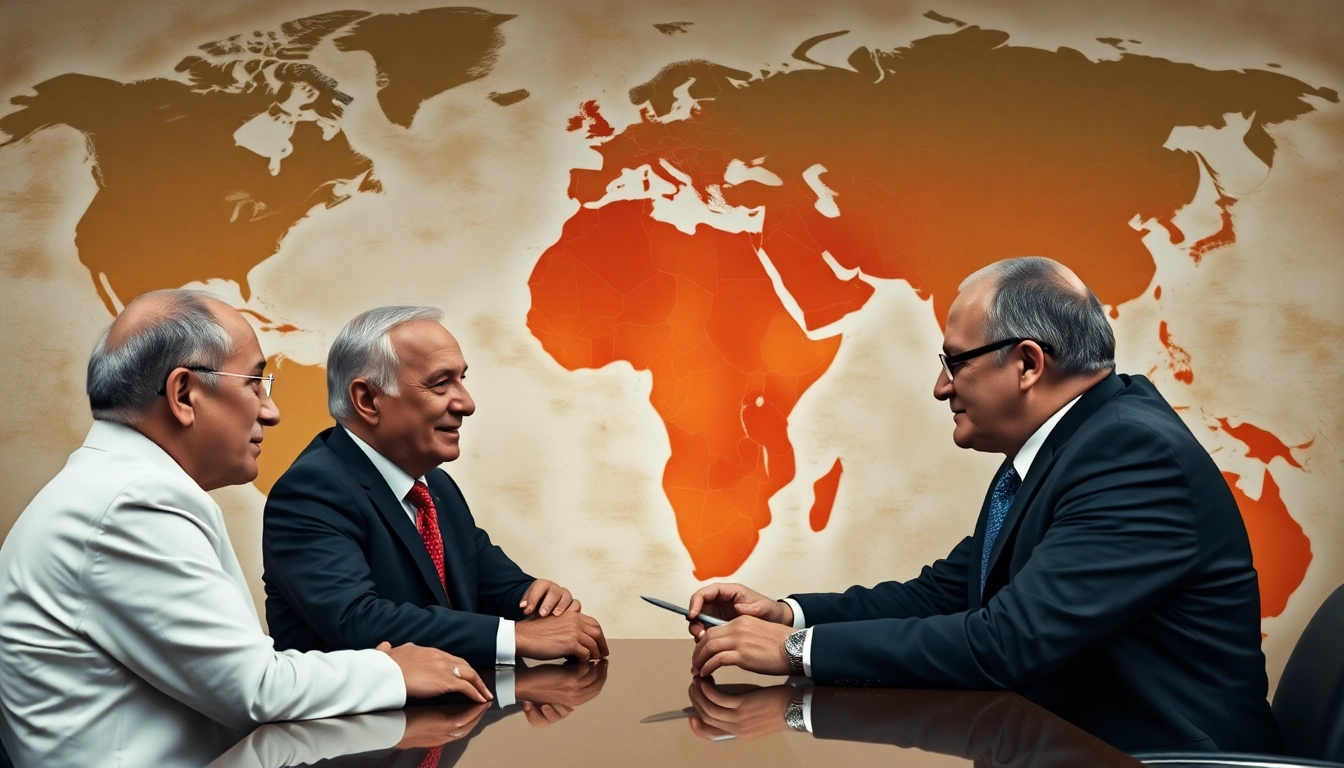Overview of the Africa Russia Summit News
Introduction to the Summit’s Purpose
The Africa-Russia Summit stands as a pivotal platform for enhancing bilateral relations, focusing on trade, security, and cultural exchange between Russia and various African nations. As we approach the 2024 iteration of the summit, its purpose resonates with urgency amidst a rapidly changing global political landscape. In this context, the summit aims to foster genuine partnerships that prioritize mutual benefit, shared interests, and collaborative growth. With the Africa Russia summit news as our lens, this article delves into the emerging dynamics that define these engagements.
Key Participants and Their Roles
The summit attracts an array of leaders, economic experts, and influencers from both regions. Russian President Vladimir Putin emphasizes the importance of establishing a strong foothold in Africa, underlining Russia’s commitment to supporting African sovereignty and self-determined development. African leaders, including heads of states from resource-rich nations, seek to leverage Russia’s technological capabilities and military support to bolster their own economic agendas. Institutions such as the African Union (AU) also attend, playing a critical role in ensuring continental interests are addressed. This diverse participation underscores the summit’s aim to create a platform for dialogue and collaboration that transcends traditional partnerships.
Agenda Highlights and Major Discussions
The agenda for the 2024 summit promises to be robust, featuring discussions on crucial topics such as:
- Enhancing trade agreements to facilitate equitable exchange.
- Collaborative efforts to address security challenges in various regions.
- Joint ventures in technological innovation and energy sectors.
Central to these discussions will be a focus on transforming the narrative around Africa-Russia relations into one of partnership rather than dependency, breaking down barriers that hinder collaborative success.
Significance of Russia-Africa Relations
Historical Context of the Partnership
Historically, Russia’s involvement in Africa traces back to the Cold War when it sought to expand its influence through support for liberation movements. This historical engagement laid a foundation for the contemporary pursuit of deeper ties with African nations, focusing on political alliances and economic cooperation. Understanding this legacy is essential in framing the current dynamic, where both Russia and African states are seeking alternatives to Western-led globalization paradigms.
Current Economic Ties and Trade Agreements
Over the years, the economic relationship has evolved substantially. Trade volumes between Russia and Africa have shown a marked increase, with sectors such as energy, arms trade, and agriculture taking center stage. Recent trade agreements involve the export of Russian military equipment to African states, reinforcing security ties. Furthermore, collaborative initiatives in sectors like agriculture and energy aim to harness local resources and improve food security across Africa, reflecting a mutual commitment to growth.
Geopolitical Implications of the Alliance
The geopolitical implications of strengthening ties between Russia and Africa are profound. This alliance could lead to a rebalancing of global power dynamics, presenting both opportunities and challenges. As African countries assert their agency on the global stage, they may find a valuable ally in Russia, which positions itself as a counterweight to Western hegemony. However, this strategic alignment raises questions about dependency and the potential for neocolonial patterns, necessitating careful navigation of diplomatic relations.
Expected Outcomes from the 2024 Summit
Strategic Initiatives and Collaborations
The 2024 summit is poised to yield significant strategic initiatives aimed at enhancing collaborative efforts in various sectors. Expect to see announcements surrounding:
- Joint infrastructure projects designed to improve connectivity across Africa.
- Increased investment in technology transfer, particularly concerning telecommunications and artificial intelligence.
- Collaborative research in areas like agriculture and health to improve innovation and capacity building.
These initiatives hold the potential to transform local economies and bolster developmental goals, fostering a sense of shared progress.
Expected Policy Changes and Reforms
As bilateral relations deepen, participants anticipate significant policy changes that will favor a more integrated approach to governance and economic management. This could involve reforms that promote trade liberalization, address trade barriers, and foster an investment-friendly environment. Furthermore, the exploration of alternative currencies for trade settlements may be introduced, aimed at reducing dependency on the US dollar and financial systems dominated by the West.
Long-Term Vision for Africa-Russia Partnerships
The long-term vision for Africa-Russia partnerships appears increasingly optimistic. Both parties are keen on developing frameworks that ensure sustainability and mutual respect for sovereignty. Initiatives toward joint training programs, academic exchanges, and cultural cooperation will likely be emphasized, promoting a more integrated approach to Africa-Russia relations that prioritizes people-to-people connections alongside governmental bonds.
Challenges Facing the Africa Russia Relations
Economic Sanctions and Their Impact
One of the paramount challenges lies in the economic sanctions faced by Russia due to global geopolitical tensions. These sanctions potentially limit the scope of trade and economic cooperation with African nations, affecting strategic projects and collaborative investments. Navigating these sanctions is crucial for African states that wish to capitalize on Russian partnerships without facing repercussions from Western powers.
Diversifying Relationships Beyond Russia
While Russia presents a beneficial partnership, African nations recognize the necessity of diversifying their international relationships. Developing ties with multiple global stakeholders becomes imperative in building resilience against market fluctuations and geopolitical shifts. This diversification strategy involves seeking investments and partnerships from other countries, ensuring that dependencies are not formed solely around one nation.
Public Perception and Media Representation
Public perception of Russia-Africa relations is multifaceted, often influenced by historical narratives and current media representations. African nations must navigate perceptions of colonialism and exploitation while engaging with Russia. Effective communication strategies that highlight successful partnerships and collaborative achievements can help mitigate negative sentiments, aligning public opinion with the broader objectives of the summit.
Future of Africa-Russia Summits
Predictions for Future Collaborations
The trajectory of future Africa-Russia summits suggests a growing emphasis on actionable outcomes, with a shift toward establishing tangible benefits for participating nations. As global dynamics continue to evolve, expectations will likely center on the practical implementation of agreements set forth in earlier summits, with tracking mechanisms put in place to monitor progress and accountability.
Role of Technology in Enhancing Diplomacy
Technology will play an increasingly integral role in enhancing diplomatic relations between Africa and Russia. Innovations in communication platforms and data-sharing systems hold potential for improving interaction between governments, businesses, and civil societies. Utilizing technology will facilitate better coordination in joint projects, enhance transparency, and streamline operations, ultimately fostering a more productive partnership.
Engaging Younger Generations in Diplomacy
Engaging younger generations in the diplomatic process is vital for the sustainability of Africa-Russia relations. Initiatives aimed at involving youth in policymaking, cultural exchange programs, and technology-driven collaborations can foster a sense of ownership over bilateral projects. By doing so, both parties ensure that the legacy of these partnerships continues to resonate across future generations, promoting ongoing collaboration and understanding.


